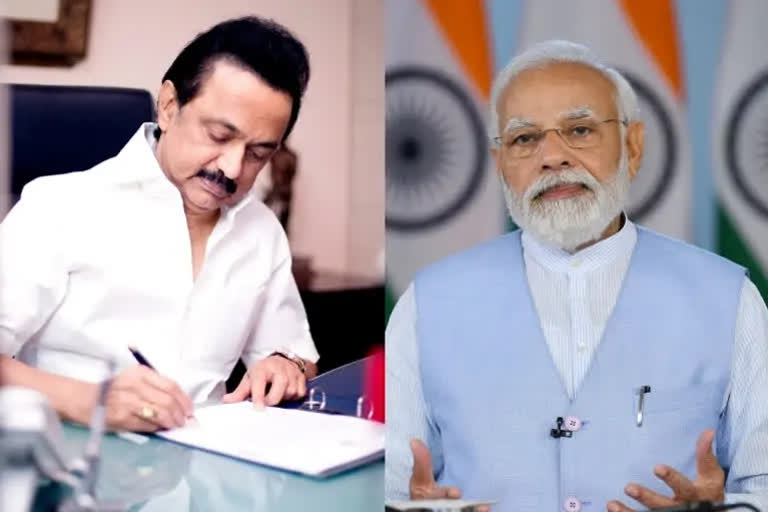Chennai: Tamil Nadu Chief Minister M.K.Stalin has written a letter to Prime Minister Narendra Modi and Chief Justice of India N.V. Ramana over the "declining representation from all the sections of the society in the higher judiciary". "I write this letter to bring to your kind attention certain important aspects relating to the higher Judiciary that needs to be addressed early," the letter by Stalin reads.
"There is no doubt that the federal structure of polity is the cornerstone of our Constitution. All our three pillars of democracy – legislature, executive, and the judiciary are established within this federal structure. Though there is a hierarchy of Courts, with the Supreme Court of India as the Apex Court, the unitary makeup of the judicial branch is only to ensure judicial discipline so that the judgements of the Supreme Court are followed by all Courts and authorities in India," it says.
In other aspects, we must not lose sight of the fact that the judicial branch also must reflect the spirit of Co-operative Federalism enshrined in our Constitution. In that context, it becomes all the more important that the Supreme Court's and the High Court's composition reflects the diverse and pluralistic society of our great nation. The Tamil Nadu CM said, "For the past few years, we have been witnessing declining representation from all the sections of the society in the higher judiciary, leading to a 'diversity deficit. Judicial diversity is fundamental to the quality of judging.
A broad based, heterogeneous group of Judges representing various sections of the society as a whole alone can reflect the views and values of society as a whole, particularly on issues involving historical, traditional, linguistic and cultural matters. This is because they would provide wider perspectives since the group of Judges would naturally interpret and enforce the law based on their multivarious backgrounds," he said.
Stalin said that all the States must find proportional representation on the Bench of the Supreme Court. "It will then truly reflect the diverse nature of Indian society in its various dimensions. Therefore, I request your good selves to include the requirements to maintain social diversity and social justice in the appointment of High Court and Supreme Court Judges in the Memorandum of Procedure to appoint Judges and follow the same in true letter and spirit," he said.
"Another issue in which the federal character of our nation must be reflected in the judicial branch, is the establishment of Permanent Regional Benches of the Supreme Court of India. When the Constitution was enacted, it was in the contemplation of the framers of the Constitution that all citizens of this country, rich or poor must have direct access to the Court," the Tamil Nadu CM said.
"That is why they enacted Article 32, a privilege not available in most other countries. Yet over time, this privilege has been eroded by economic constraints. Article 32 is now practically available only to (i) citizens who are geographically close to the Supreme Court and (ii) the financially privileged class to whom costs of litigation and travel do not matter," he said.
Stalin said that "such a situation is antithetical to the constitutional mandate under Article 39". "Considering the fact that the Supreme Court is located at New Delhi (which is not equidistant to all parts of the country) and is far away from many States, particularly the Southern, South Western & Eastern States, the citizens in these States are deprived of their fundamental right to approach the Court".
he said that while there are 25 High Courts across the nation, "it is seen from data that the number of appeals being filed in the Supreme Court is more from States around the NCR region than States located further away from Delhi. The Constituent Assembly Debates show that even the framers of the Constitution, as early as 1950, recognized that the Supreme Court would need to have branches in other parts of the country as the nation grows".
